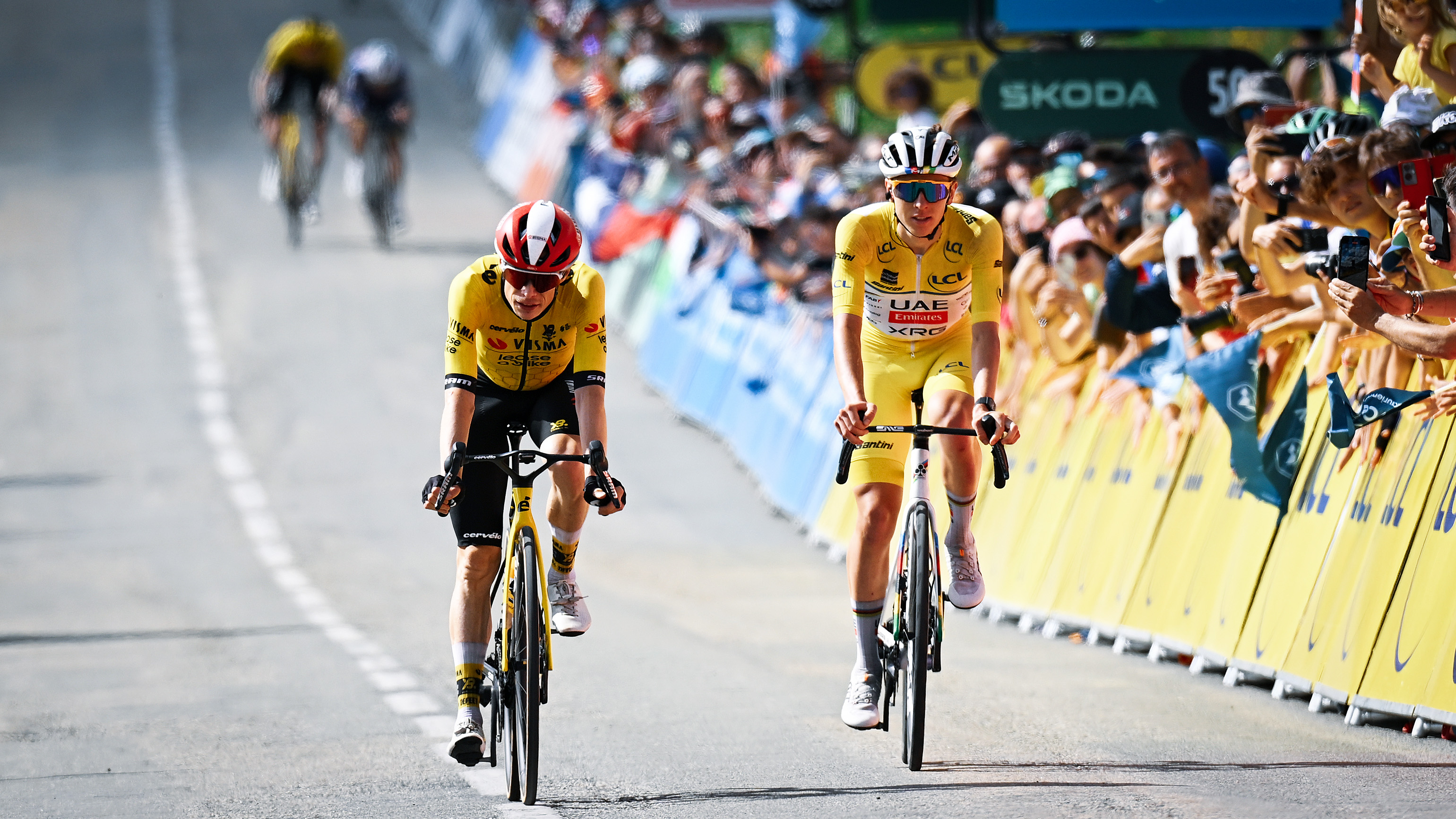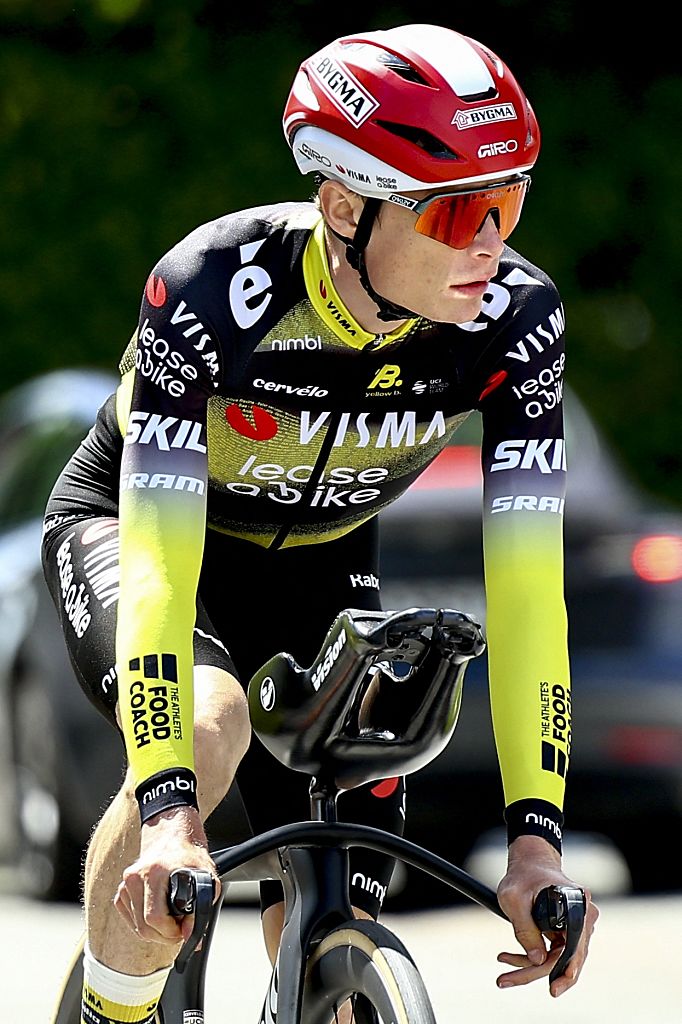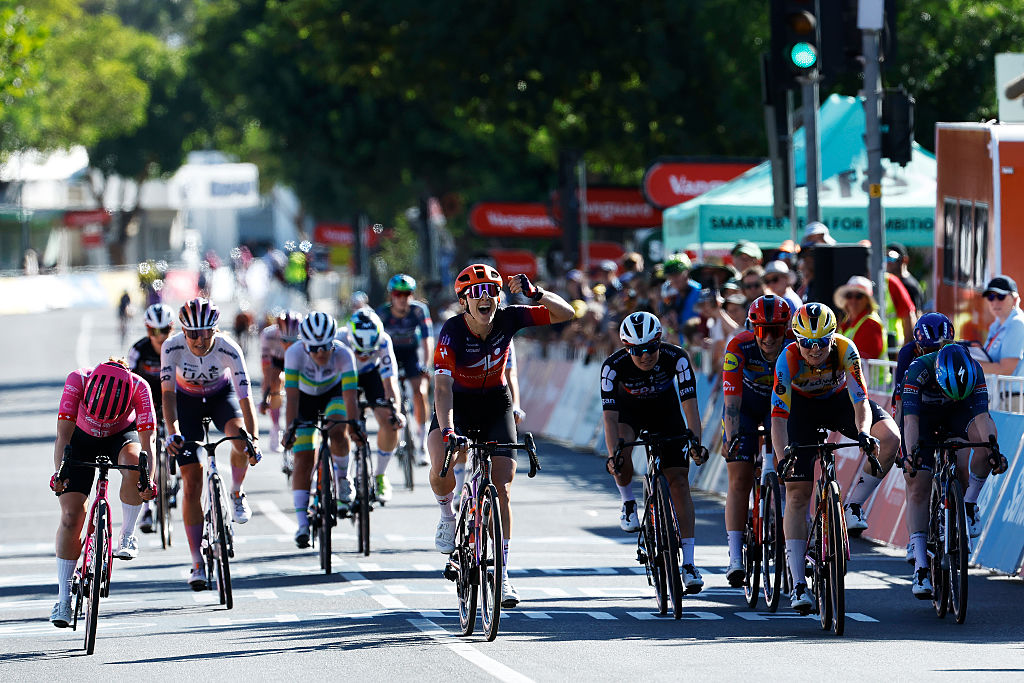It's Round Five in the epic Vingegaard-Pogačar duel - Philippa York analysis
Philippa York takes a close look at form, tactics and team strengths ahead of the major battle at the 2025 Tour de France

The 112th edition of the Tour de France is almost as traditional as they come. No silly gravel sectors and no Grand Depart on foreign soil signal that this year's race is for the purists.
In modern cycling, it’s rare that there isn’t some kind of gimmick to add a dose of peril to the racing, but ASO have planned a route that will pit the best road cyclists against each other with no excuses. Despite starting in Lille, there is no pavé on the menu and that staple bugbear of the smaller squads – the dreaded team time trial – has been left out too.
What the 21 stages provide is a setting where the two best general classification riders of the decade, Tadej Pogačar and Jonas Vingegaard, can renew their rivalry. Like all the best Tours, the battle that ensues should push each individual to their limit.
Ignoring 2025 for a moment, their encounters are remarkably consistent. In the last four editions of the Tour, it’s basically been all square. Both have won two, and both have finished runner-up when the other triumphed. Pogacar’s 2020 debut win puts him ahead of the Dane with three yellow jerseys against Vingegaard's two, but statistically, the two of them dominate at this hallowed level.
Looking through how each of them established those wins, there have been some indicators of where the strengths of each lie. Pogacar at his best would climb with Vingegaard and then distance the Dane in the time trials. The polar opposite has often been true for the Visma leader. Vingegaard in top form could distance Pogacar in the mountains and maintain his lead in the time trials.
However, the Wout van Aert–Visma core depth effects have also been critical to both of Vingegaard’s wins, so the team strength and situation have counted for something. Tactically, they’ve been better than UAE, never better illustrated than on the Galibier en route to Col du Granon, where Pogacar was worked over by Roglic and Vingegaard.
But Tadej Pogacar and UAE have progressed since then, and this season the World Champion has been pretty faultless. His climbing abilities have taken another step forward, so much so that it makes me think they’ve looked at what they are up against and prioritised that part of his game. The recent Dauphine time trial result, where he only managed a fourth place, suggests they may well have done so. Losing nearly 30 seconds to Vingegaard was a complete surprise, but then Tadej wiped the floor with everyone as soon as the climbs came along.
The latest race content, interviews, features, reviews and expert buying guides, direct to your inbox!

I think that in the run-up to the Tour, Pogacar will have done more work on his TT and aero position now that he’s happy with his climbing abilities.
By contrast, Jonas Vingegaard’s situation is a little trickier. Yes, he beat Tadej in that TT, but then he couldn’t live with him uphill. He was the closest rival; however, he was clearly at his limit, whilst his rival seemed to be in complete control. Maybe he’d been concentrating on his TT and aero work in the assumption that his climbing would be unaffected. Getting all the elements to balance out is not a simple affair, even with the resources available in the Visma camp. In terms of mental sparring before the main event, Pogacar landed the big punches when everyone wondered if he could still produce the stage racing performances to match the one-day results he had produced during the Classics campaign.
That confidence, as any TdF champion will tell you, is a big part of the psychological struggle between riders at this level. The slightest weakness becomes a doubt, and any advantage is confirmation.
Therefore, Tadej Pogacar starts as the favourite and Jonas Vingegaard his nearest challenger.
How near will depend on finding the last percentages of his climbing abilities, and probably more crucially for Visma compared to UAE, how good the backup is for the Dane.
Van Aert has had his preparations disrupted by illness, Sepp Kuss hasn’t quite reached his best level, and Simon Yates has to be carrying some fatigue from the Giro. Matteo Jorgensen might well be the last man standing for Vingegaard when the Team UAE Express hits the mountains, because make no mistake, their tactic will be the same one they’ve used in the past – set a tempo where the other leaders are on their limit and then unleash Pogacar.
Not many have been able to react to his acceleration, and I don’t see that changing. If anything, the acceptance that the final podium place behind the big two is the only one accessible may well see some interesting battles.
In terms of hierarchy, obviously Tadej Pogacar is at the top as favourite, just below is Jonas Vingegaard, and theoretically, the third spot is all to play for. On the mountaintop finishes Remco Evenepoel will set his tempo and not deviate from that, similar for Primož Roglič, but the Yates twins, Florian Lipowitz and Felix Gall ought to have days when they are really good. João Almeida, too, though he will be sacrificed if a situation arises.
The first proper mountain finish on Hautacam will have many of the answers, but the Tour is always a tale of two riders.
The Tour de France is the biggest race in cycling, and a Cyclingnews subscription offers you unlimited access to our unrivalled coverage.
Get all the breaking news and analysis from our team on the ground in France, plus the latest pro tech, live race reports, and a daily subscriber-only newsletter with exclusive insight into the action. Find out more
Philippa York is a long-standing Cyclingnews contributor, providing expert racing analysis. As one of the early British racers to take the plunge and relocate to France with the famed ACBB club in the 1980's, she was the inspiration for a generation of racing cyclists – and cycling fans – from the UK.
The Glaswegian gained a contract with Peugeot in 1980, making her Tour de France debut in 1983 and taking a solo win in Bagnères-de-Luchon in the Pyrenees, the mountain range which would prove a happy hunting ground throughout her Tour career.
The following year's race would prove to be one of her finest seasons, becoming the first rider from the UK to win the polka dot jersey at the Tour, whilst also becoming Britain's highest-ever placed GC finisher with 4th spot.
She finished runner-up at the Vuelta a España in 1985 and 1986, to Pedro Delgado and Álvaro Pino respectively, and at the Giro d'Italia in 1987. Stage race victories include the Volta a Catalunya (1985), Tour of Britain (1989) and Critérium du Dauphiné Libéré (1990). York retired from professional cycling as reigning British champion following the collapse of Le Groupement in 1995.
You must confirm your public display name before commenting
Please logout and then login again, you will then be prompted to enter your display name.

